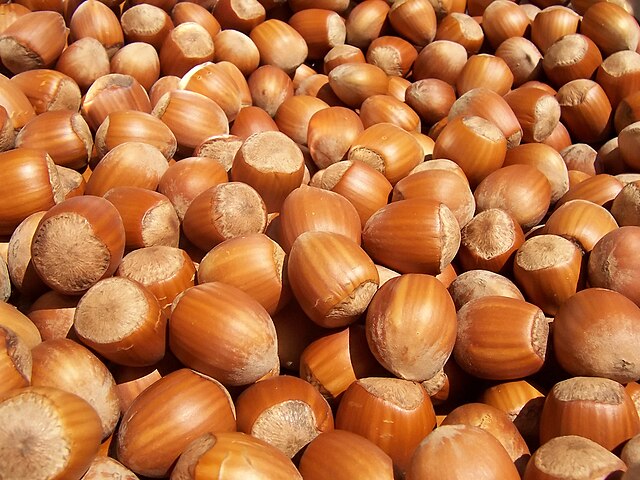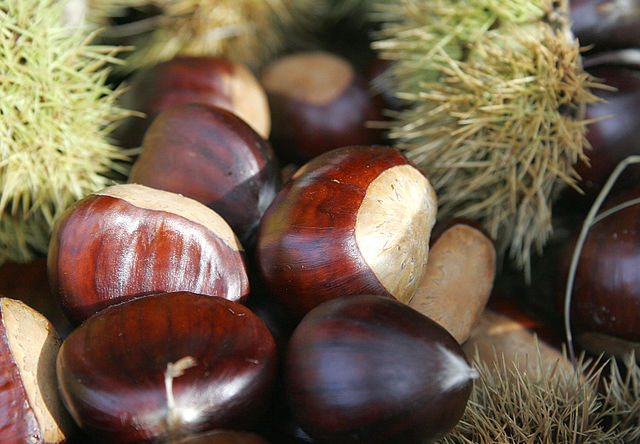Nut (fruit)
in botany, type of dry indehiscent fruit From Wikipedia, the free encyclopedia
A nut is a hard-shelled fruit of some plants. They are an important part of the diet. Many dried seeds and fruits are called 'nuts' in English, but only some are nuts to a botanist.



Nuts are made of the seed and the fruit. Most seeds come from fruits, and the seeds are released from the fruit. But nuts have a stony fruit wall which keeps the seed inside.
Definition
In common speaking, many so-called nuts, like pistachios and Brazil nuts,[1] are not nuts in a biological sense. Everyday usage of the term often means any hard-walled, edible kernel.[2]
A nut in botany is a simple dry fruit with one seed (rarely two). The ovary wall is hard (stony or woody) when it matures, and the seed is stuck to the ovary wall.
Types of nuts
Types of nuts include the oak, hickory, chestnut, stone-oak, birch, hazelnut, and acorn. The peanut, coconut, almond, macadamia, pistachio, pecan, walnut and cashew are not true nuts, but are used like nuts in cooking.
Nutrition
Nuts have nutrients that are important for growing a new plant. They have protein, fats, vitamins, and minerals. Nuts also give these nutrients to humans and wildlife that eat them. However, some people are allergic to nuts.
References
Other websites
Wikiwand - on
Seamless Wikipedia browsing. On steroids.
